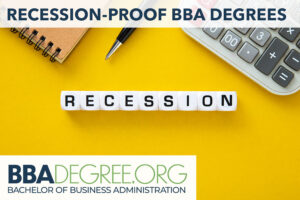How to Become a Financial Advisor

If you have an interest and finance and a desire to help individuals and organizations with various financial matters, including investments, retirement planning, insurance, tax strategies, and estate planning, then becoming a financial advisor may be for you. Financial advisors help clients make informed financial decisions to achieve their financial goals and manage their wealth effectively. Keep reading to learn more about what it takes to become a financial advisor, including education, certifications, salaries, and job opportunities.
What Is a Financial Advisor?
A financial advisor is a professional who assists clients in managing their finances and achieving their financial objectives. Their responsibilities often include:
- Assessing clients’ financial situations, goals, and risk tolerance.
- Developing personalized financial plans and strategies and providing investment advice.
- Assisting with retirement planning, including analyzing pension plans and Social Security benefits.
- Advising on insurance coverage, including life, health, and property insurance.
- Evaluating tax strategies and collaborating with tax professionals.
- Assisting with estate planning, including wills, trusts, and inheritance management.
- Monitoring and reviewing clients’ financial progress and adjusting strategies as needed.
Step 1: Complete a BBA Degree
While a specific degree is not always required to become a financial advisor, obtaining a Bachelor of Business Administration (BBA) degree, particularly a BBA in Finance, can provide a strong foundation of knowledge and skills necessary for success in this profession. Consider the following aspects when pursuing a BBA degree:
- Relevant Concentrations: Some universities offer concentrations or specializations in finance, investments, or financial planning, which can provide focused coursework directly applicable to the role of a financial advisor.
- Typical Curriculum: A BBA program generally covers subjects such as accounting, finance, economics, business law, marketing, and management. Coursework focusing on investments, financial analysis, risk management, and financial planning can be particularly valuable.
- Online Program Options: Hybrid and fully online BBA programs offer coursework in business administration and related subjects with maximum flexibility in mind. Ensure that the program you select holds trusted accreditation and is recognized by reputable institutions.
- Internships and Experiential Learning: Seek internships or part-time positions in financial firms, banks, or wealth management companies to gain practical experience and apply classroom learning in a real-world setting. These experiences can help you develop essential skills and make valuable professional connections.
LEARN MORE: Find a BBA School in your area.
Step 2: Determine If You Need Any Certifications to Become a Financial Advisor
While not always mandatory, obtaining certain certifications can enhance your credibility, knowledge, and job prospects as a financial advisor. Consider the following certifications that are commonly sought after in the industry:
- Certified Financial Planner (CFP): The CFP certification is highly regarded and demonstrates expertise in financial planning, including investments, retirement planning, tax, and estate planning. You must complete specific coursework, pass an exam, and meet experience requirements to earn this certification.
- Chartered Financial Analyst (CFA): The CFA designation is globally recognized and focuses on investment management and financial analysis. It requires passing a series of rigorous exams and meeting professional experience requirements.
- Series 7 and Series 66: These licenses are required for individuals who sell securities products. The Series 7 license allows you to sell a broad range of securities, while the Series 66 license permits you to provide investment advice and services.
- Other Designations: Depending on your specialization or target market, there are additional certifications you may consider, such as the Chartered Life Underwriter (CLU) for insurance planning or the Certified Investment Management Analyst (CIMA) for investment management.
Research the requirements and benefits of these certifications to determine which ones align with your career goals and aspirations.
Step 3: Learn About Financial Advisor Salaries
Financial advisor salaries can vary based on factors such as experience, location, employer, and the advisor’s ability to build and retain a client base. According to the U.S. Bureau of Labor Statistics (BLS), the median annual wage for personal financial advisors was $94,170 in May 2021. However, it’s important to note that salaries can range significantly, with top earners in the field earning well into six figures or more.
Factors that may influence BBA salaries for financial advisors include:
- Experience: Financial advisors with more experience and a proven track record of success generally command higher salaries.
- Client Base: The size and composition of your client base can impact your earning potential. Building and maintaining strong relationships with high-net-worth clients or specialized markets can lead to higher compensation.
- Location: Salaries can vary depending on the cost of living and the demand for financial advisors in a specific geographic area, with urban areas typically commanding the highest salaries.
- Employer Type: Financial advisors may work for large financial institutions, independent advisory firms, insurance companies, or be self-employed. Compensation structures can differ based on the type of employer and the revenue-sharing arrangements in place.
Step 4: Find a Job as a Financial Advisor
Financial advisors can work in various environments, including:
- Independent Advisory Firms: Many financial advisors choose to work for independent registered investment advisory (RIA) firms. These firms typically offer a wide range of financial services and allow advisors to provide unbiased advice and access to diverse investment options.
- Brokerage Firms: Brokerage firms employ financial advisors who often work on a commission-based model. They provide investment advice and sell financial products offered by the firm, such as stocks, bonds, mutual funds, and annuities.
- Banks and Financial Institutions: Banks and other financial institutions often have in-house financial advisors who provide financial planning and investment advice to their clients. These positions may also involve cross-selling banking products and services.
- Insurance Companies: Some financial advisors specialize in insurance planning and work for insurance companies. They provide advice on life insurance, health insurance, annuities, and other insurance-related products.
- Self-Employment: Experienced financial advisors may choose to establish their own independent practices or join a network of independent advisors. This option provides greater autonomy and flexibility but requires entrepreneurial skills to establish and grow a client base.
To find job opportunities as a financial advisor, you can utilize online job boards, network with professionals in the industry, attend industry conferences and events, and consider internships or entry-level positions to gain practical experience and industry exposure.
EXPLORE MORE: Learn about related BBA Careers.






















